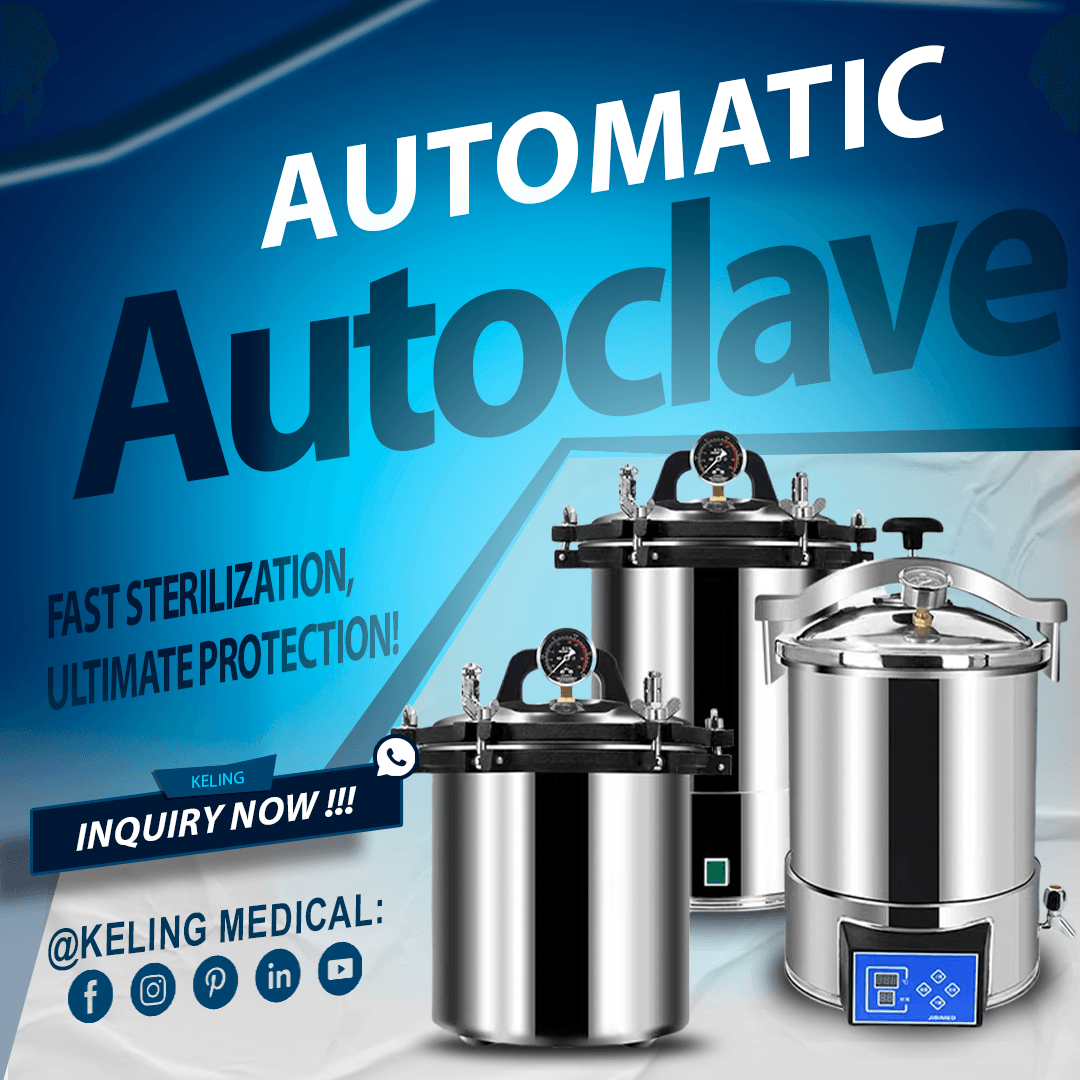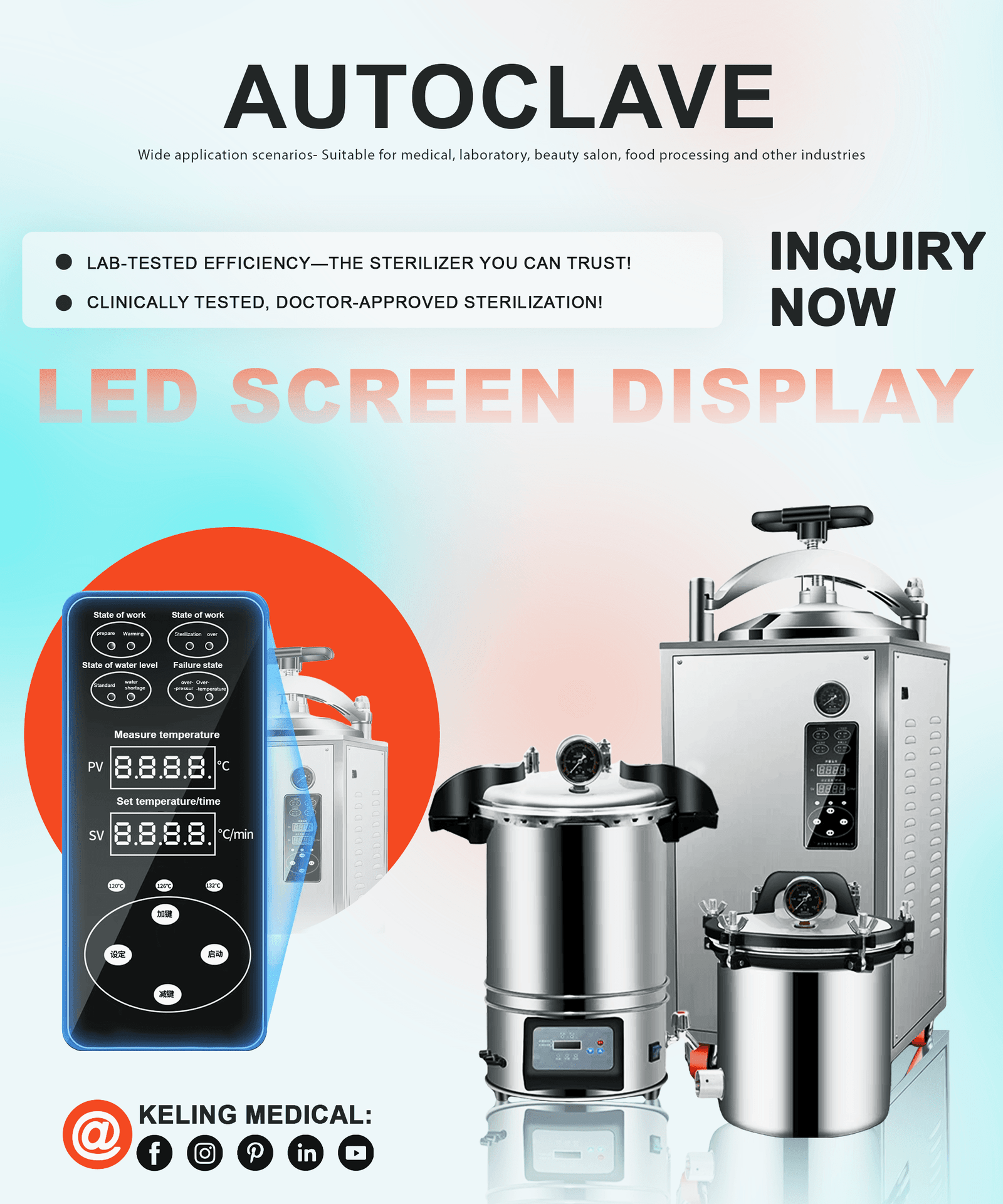
Choosing an appropriate autoclave machine requires understanding the different types available which can help hospital managers, clinic operators, and laboratory technicians select the best model for their needs. This guide will guide readers through the functionality and advantages of typical autoclave machine options available in the market.
Large high-capacity horizontal autoclaves serve heavy-duty sterilization needs. These machines serve as the standard choice in settings that demand the sterilization of large amounts of materials at once.
Its spacious chamber enables it to hold a substantial amount of instruments and materials.
Many modern autoclave models feature automated controls to simplify operation.
The autoclave’s stainless steel build enables it to resist extreme pressure and temperature conditions.
Medical facilities utilize sterilization equipment to clean surgical instruments as well as hospital linens and various medical tools.
Industrial applications include curing composite materials such as carbon fiber and sterilizing various industrial components.
Pharmaceuticals: Ensuring sterility in drug production processes.
The system operates at peak efficiency which is beneficial for extensive operations that require less time and effort.
Advanced models of autoclaves deliver precise management of temperature and pressure through customizable settings.
This equipment resists wear and functions reliably under tough operating conditions for extensive periods.
Vertical autoclaves provide space-efficient solutions that suit small facility needs. Vertical autoclaves find widespread use across laboratories and dental clinics as well as research centers.
The vertical design reduces its base size to provide a perfect solution for spaces with limited room.
The system operates through simple manual controls or semi-automated interfaces for straightforward operation.
The autoclave achieves fast sterilization by quickly generating steam.
Laboratories: Sterilizing glassware, pipettes, and culture media.
Dental Clinics use autoclaves to clean and sterilize small equipment such as drills and mirrors.
Veterinary Clinics: Sterilizing surgical and diagnostic instruments.
This system provides affordable sterilization solutions for small facilities with limited sterilization demands.
This equipment is simple to use regardless of one’s technical background.
This model operates with reduced power consumption relative to bigger models.
These mobile sterilization tools combine compact size with lightweight construction to perform small-scale sterilization tasks.
The design allows placement on countertops or easy transportation to multiple sites.
Basic sterilization needs can be met through straightforward manual controls.
The machine consumes minimal power which makes it perfect for use in mobile situations or locations without a stable power supply.
Tattoo Studios keep their equipment sanitized by sterilizing needles and tools that can be reused.
Beauty Salons need to sterilize their nail tools and scissors along with other equipment.
Mobile clinics benefit from sterilization capabilities which enable operations in remote or temporary locations.
A cost-effective solution designed for small business needs or personal applications.
Convenient: Easy to transport and operate.
This system works effectively across multiple small-scale uses.
Advanced sterilization units known as Class B autoclaves use both pre-vacuum and post-vacuum cycles in their operation. These machines can process complex loads which include both hollow instruments and porous items.
The sterilization process begins with vacuum technology that eliminates air from the chamber so steam reaches all surfaces effectively.
The system enables detailed control of operating parameters including temperature levels, pressure settings, and length of the sterilization cycle.
Their advanced components do not affect their relatively small size which allows them to fit into medical clinics and laboratories.
Dental Clinics use sterilization systems to clean hollow instruments such as dental handpieces.
Medical Facilities need to achieve full sterilization of all surgical and diagnostic instruments.
Laboratories: Handling sensitive and complex equipment.
Complete Sterilization: The process guarantees sterilization reaches every concealed region of instruments.
Meets all necessary sterilization standards set for healthcare environments.
Able to handle different materials and instruments.
The selection of an autoclave machine requires consideration of multiple different factors.
Identify the maximum quantity of instruments that need simultaneous sterilization.
Horizontal autoclaves offer the best solution for large-scale sterilization needs.
A vertical or portable autoclave will work for processing smaller loads of materials.
Take into account the amount of space your facility has available.
Horizontal autoclaves demand more space compared to vertical autoclaves and portable models which are designed to fit into compact areas.
Budget: Assess your financial constraints.
Mini and portable autoclaves provide budget-friendly options whereas Class B autoclaves deliver advanced functionalities with a premium price tag.
Select the autoclave type that best fits your particular application requirements.
Dental clinics require Class B autoclaves but horizontal autoclave models function best for hospitals and industries.
Knowledge of autoclave machine types helps you pick the best machine for your specific needs. Every hospital, laboratory and small business has access to a specific autoclave machine that fulfills its sterilization needs.
Autoclave machines range from big horizontal units for mass sterilization to compact portable models for mobile use with each offering distinct features and advantages. By thoroughly assessing your requirements you can make an informed decision which will lead to optimal sterilization results.
Q1: What is the difference between horizontal and vertical autoclaves? Horizontal autoclaves are larger and designed for bulk sterilization, while vertical autoclaves are compact and suited for smaller facilities.
Q2: Are mini autoclaves effective for sterilization? Yes, mini autoclaves are effective for small-scale sterilization tasks, such as in tattoo studios or beauty salons.
Q3: What is a Class B autoclave machine? Class B autoclaves use vacuum technology to ensure thorough sterilization, making them ideal for complex instruments and hollow tools.
For expert advice on selecting the right autoclave machine, contact Keling Medical:
Email: inquiry@shkeling.com
WhatsApp: +8618221822482
Website: https://autoclaveequipment.com/

Introduction Autoclave machines used in hospitals are one of the most important investments in healthcare infrastructure, serving as the first line of defense against healthcare-associated infections. Sophisticated sterilization equipment is

The autoclaving process serves as an essential sterilization practice utilized across medical, laboratory, and research facilities to protect glassware and instruments through effective sterilization. High-pressure steam eliminates pathogens during this

The autoclaving process serves as an essential sterilization practice utilized across medical, laboratory, and research facilities to protect glassware and instruments through effective sterilization. High-pressure steam eliminates pathogens during this

The autoclaving process serves as an essential sterilization practice utilized across medical, laboratory, and research facilities to protect glassware and instruments through effective sterilization. High-pressure steam eliminates pathogens during this

The autoclaving process serves as an essential sterilization practice utilized across medical, laboratory, and research facilities to protect glassware and instruments through effective sterilization. High-pressure steam eliminates pathogens during this
The autoclaving process serves as an essential sterilization practice utilized across medical, laboratory, and research facilities to protect glassware and instruments through effective sterilization. High-pressure steam eliminates pathogens during this